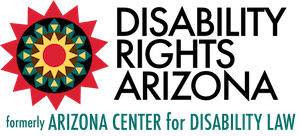By: Chloe Plaisance* (*Chloe Plaisance is currently a law student at the Sandra Day O’Connor College of Law at Arizona State University. Chloe completed a legal internship with ACDL’s Education Team in the Spring of 2022.)
Eligible students with disabilities receive special education and related services through a plan called an Individualized Education Program, or IEP. IEPs are developed by a group of stakeholders known as an IEP team. Once an IEP team determines the special education and related services a student needs, then the team must decide where to provide those services. Where the student receives services is the placement. The continuum of placement options includes general education classrooms, special education classrooms, separate private schools designed to serve students with disabilities, residential treatment centers, and hospitals or homebound instruction. This three-post blog series describes:
- (1) the difference between public school placement in a private school setting and parental placement in a private school setting,
- (2) unilateral parental placement of students in private schools, and
- (3) identifies important rules that parents must follow if they wish to be reimbursed for the tuition they pay for private school placement during a special education dispute resolution process.
Today’s blog post addresses the difference between a public school placement of a student in a private setting and a parental placement of a student in a private setting.
District Private Placement
In Arizona, public school districts and public charter schools (also known as “local education agencies” or LEAs) are required to provide a Free and Appropriate Public Education, or FAPE, to enrolled students with disabilities enrolled. Sometimes, an LEA does not have a placement that meets a student’s needs. If an LEA determines it does not have the appropriate placement available to provide a student with FAPE, it may contract with a private school to serve the student. This is called a district private placement.
In a district private placement, the IEP team decides to place the student in a separate day school for students with disabilities. In Arizona, this is known as a “Level D” placement. In a Level D placement, the LEA remains responsible for providing the student with FAPE. This means the LEA must pay for the tuition cost at the private school and ensure all services required by the student’s IEP, such as speech therapy, occupational therapy, and specialized transportation are provided to the student while they are placed at the private school.
Parental Enrollment in Private Schools
Parents have the right to send their child to private school at their own expense. However, when parents choose to place their child in a private school, they opt out of the public school system and most of the rights and procedural safeguards afforded by the Individuals with Disabilities Education Act (or IDEA). This is because the IDEA only applies to schools that accept federal public funding, not to private schools or students being homeschooled.
When a parent believes that their child’s LEA is failing to provide or is incapable of providing FAPE to their child, they may ask the IEP team to change their child’s placement to a Level D private day school. If the LEA can provide FAPE at one of its own schools, the LEA is not required to change the placement to a Level D placement upon parental request. If the parent and the LEA disagree about the LEAs ability to provide FAPE in-house, the parent has the option to remove their child from the LEA and make a unilateral parental placement in a private school. The parent can then seek reimbursement from the LEA for the private placement in a due process hearing. More details about this process will be discussed in our next blog posts.
DISCLAIMER:
THIS BLOG/WEB SITE IS MADE AVAILABLE BY ACDL AND ITS LEGAL STAFF FOR EDUCATIONAL PURPOSES TO GIVE YOU GENERAL INFORMATION AND A GENERAL UNDERSTANDING OF THE LAW, NOT TO PROVIDE SPECIFIC LEGAL ADVICE. BY USING THIS BLOG SITE, YOU UNDERSTAND THAT THERE IS NO ATTORNEY-CLIENT RELATIONSHIP BETWEEN YOU AND ACDL. THE GENERAL INFORMATION ON THE BLOG/WEBSITE SHOULD NOT BE USED AS A SUBSTITUTE FOR COMPETENT LEGAL ADVICE FROM A LICENSED PROFESSIONAL ATTORNEY IN YOUR STATE. COMMENTING ON A POST DOES NOT CONSTITUTE AN INTAKE WITH ACDL. IF YOU WOULD LIKE TO REQUEST LEGAL ADVICE OR SERVICES CLICK HERE FOR INFORMATION ABOUT OUR INTAKE STEPS.


0 Comments